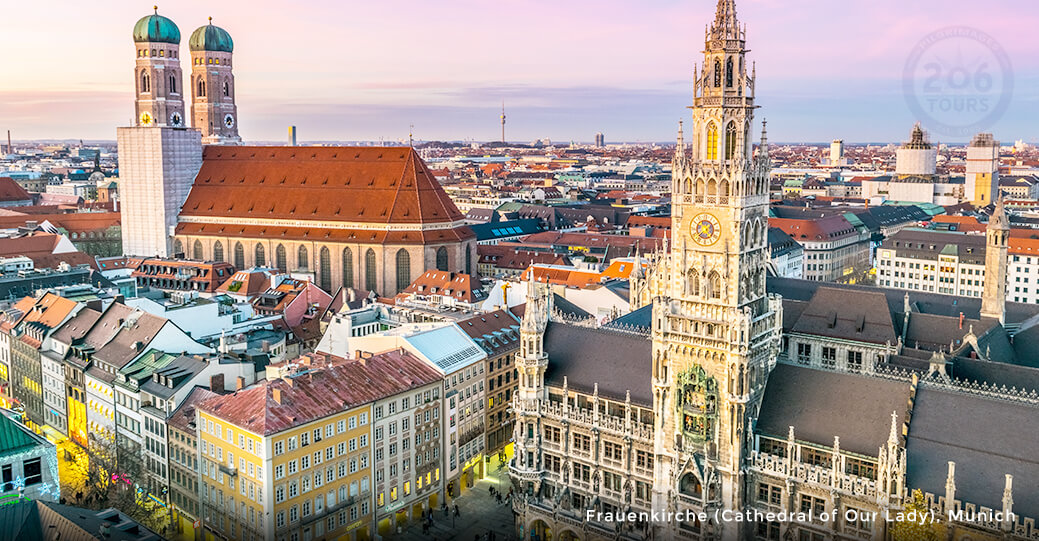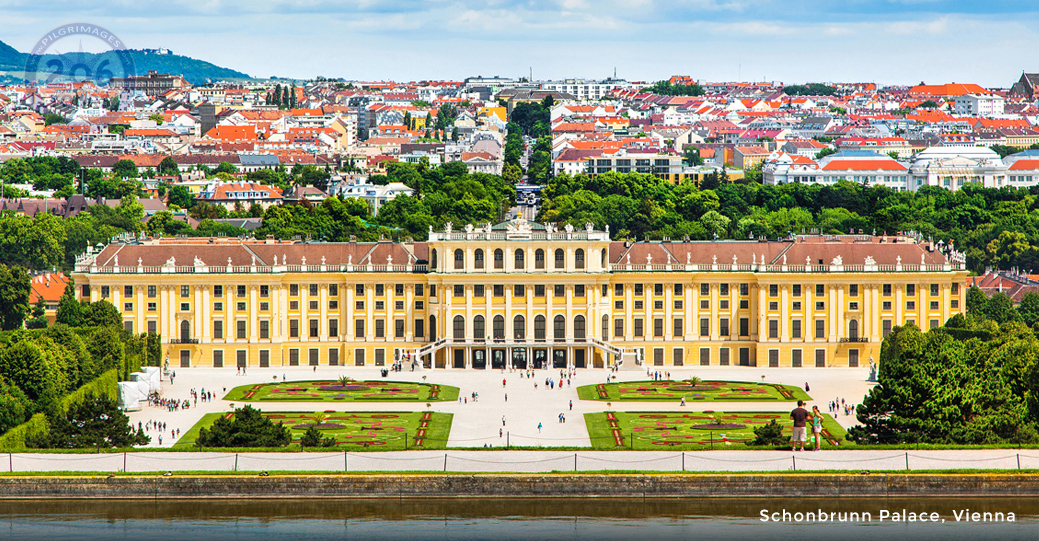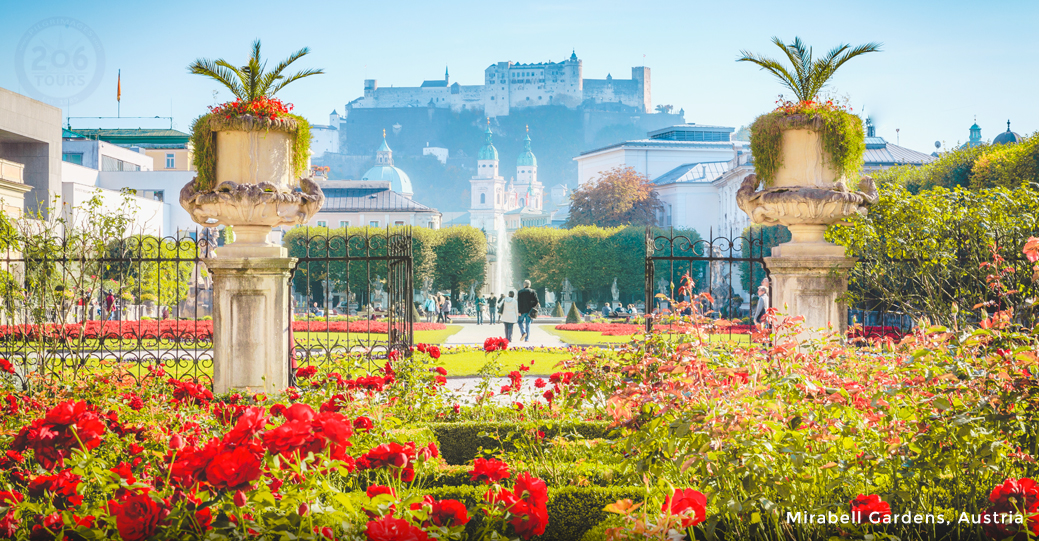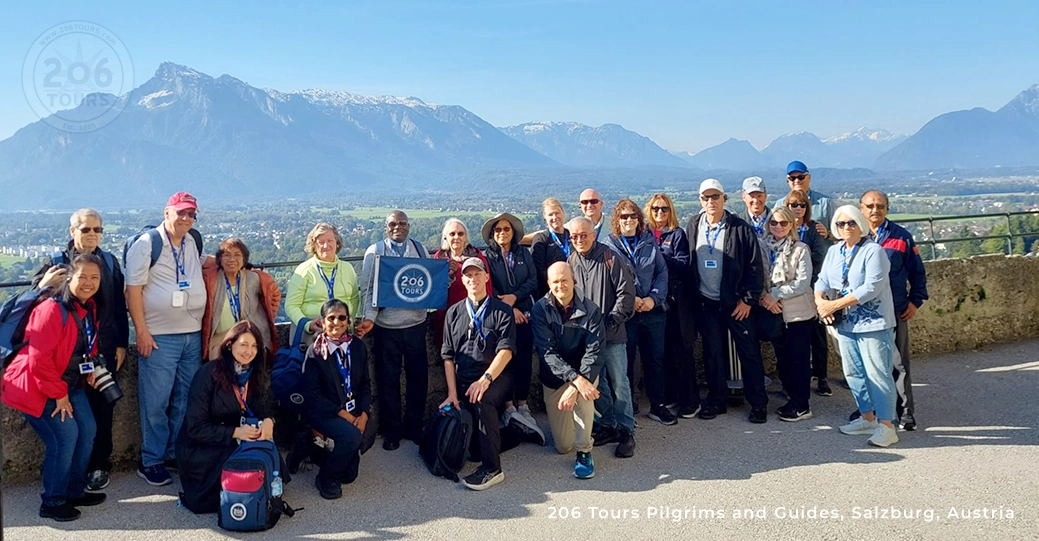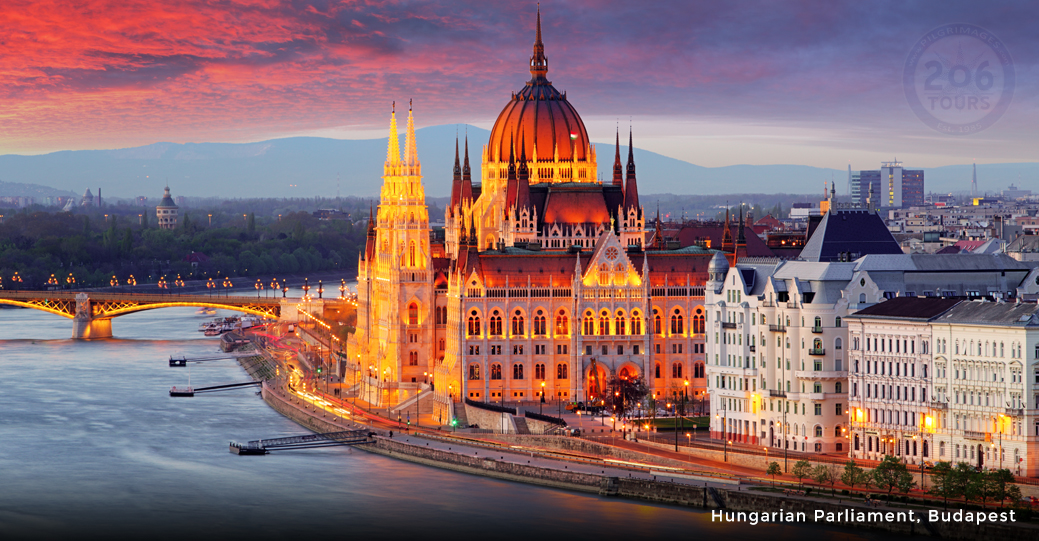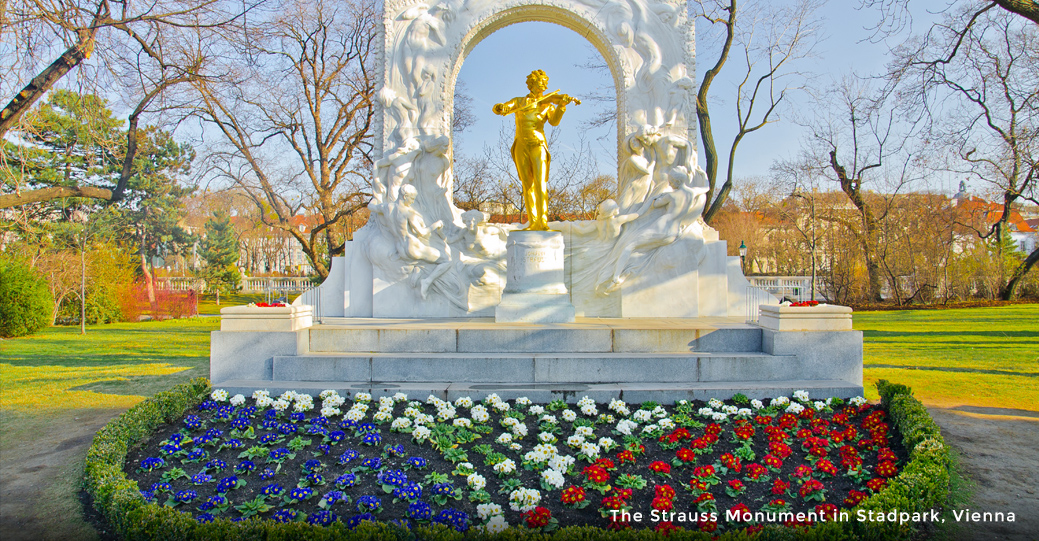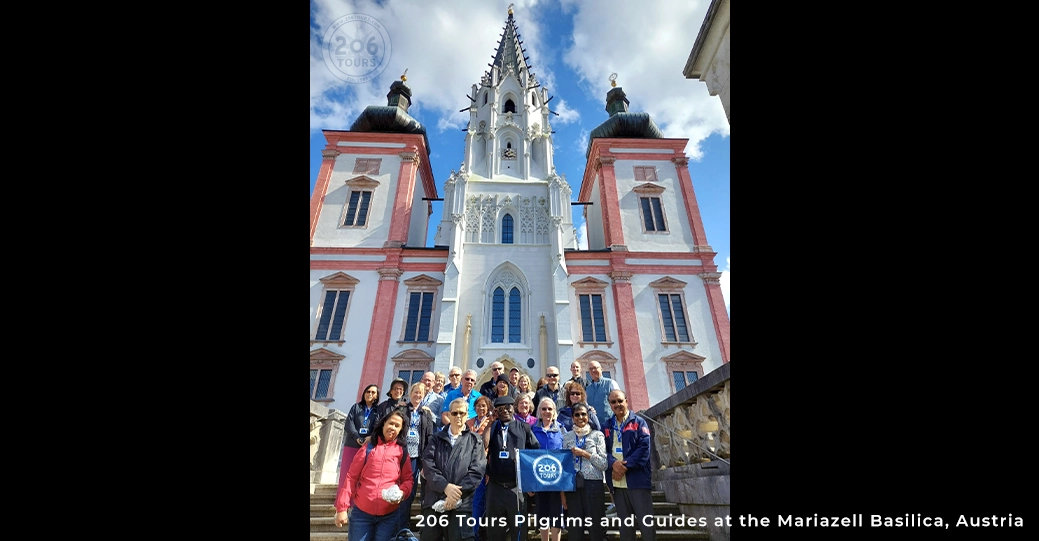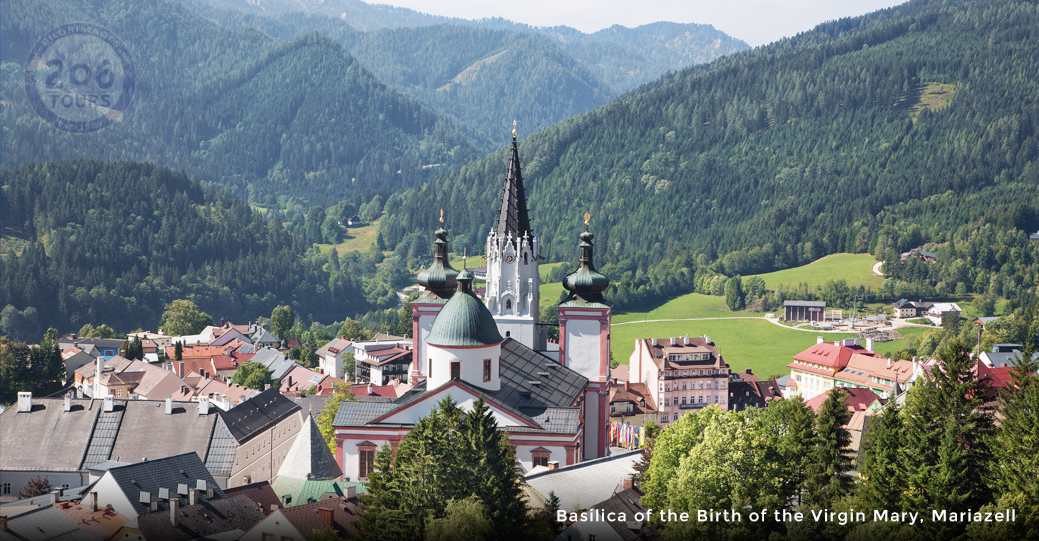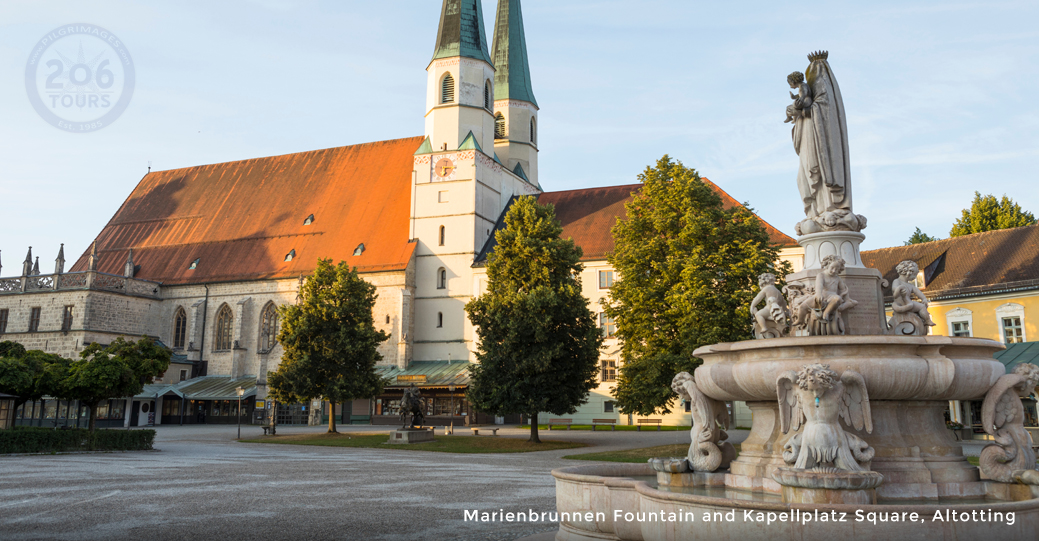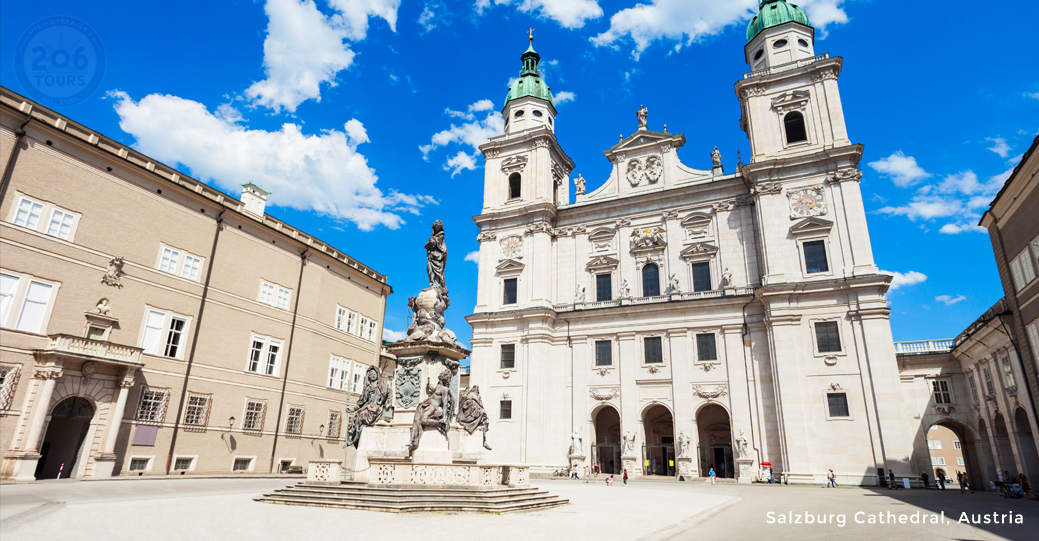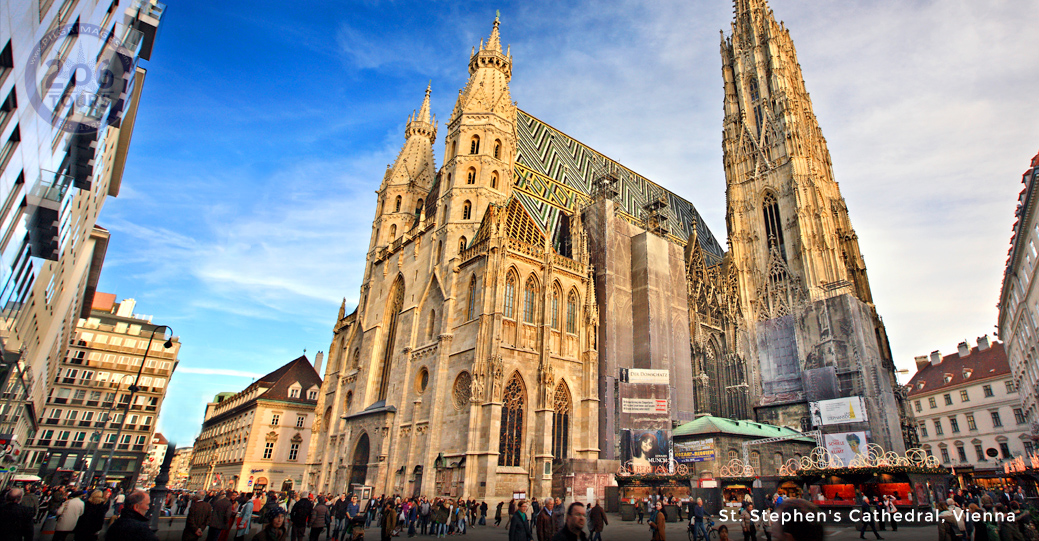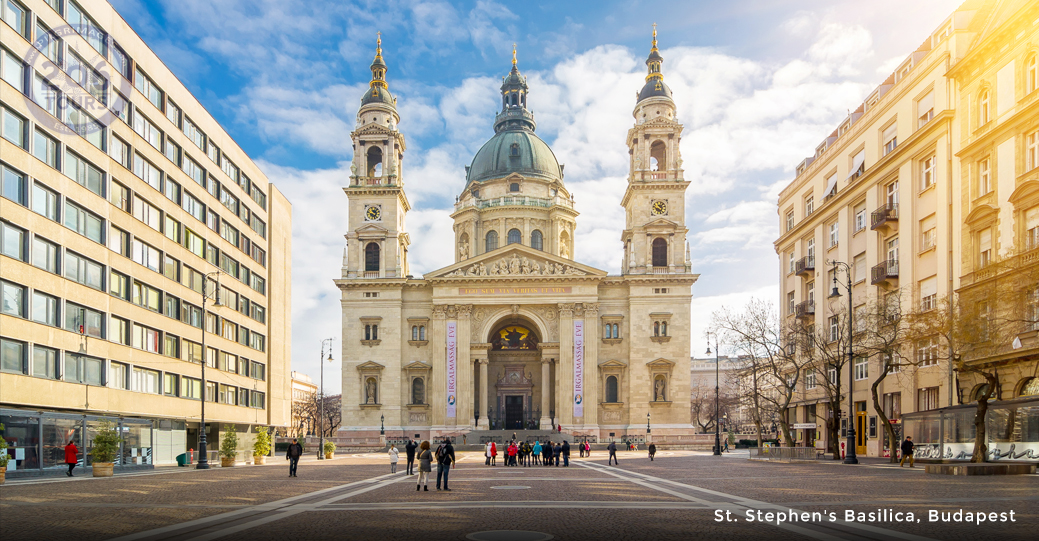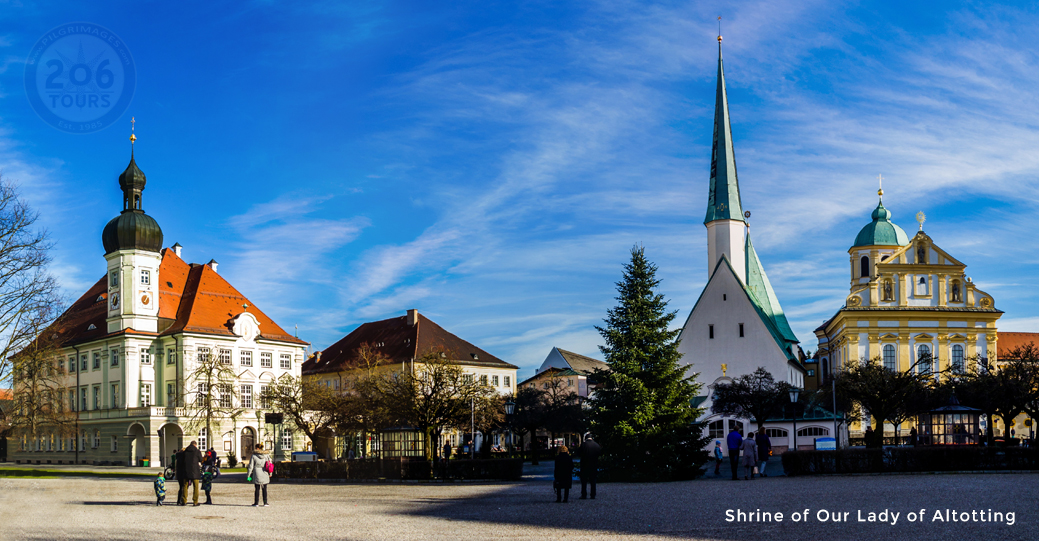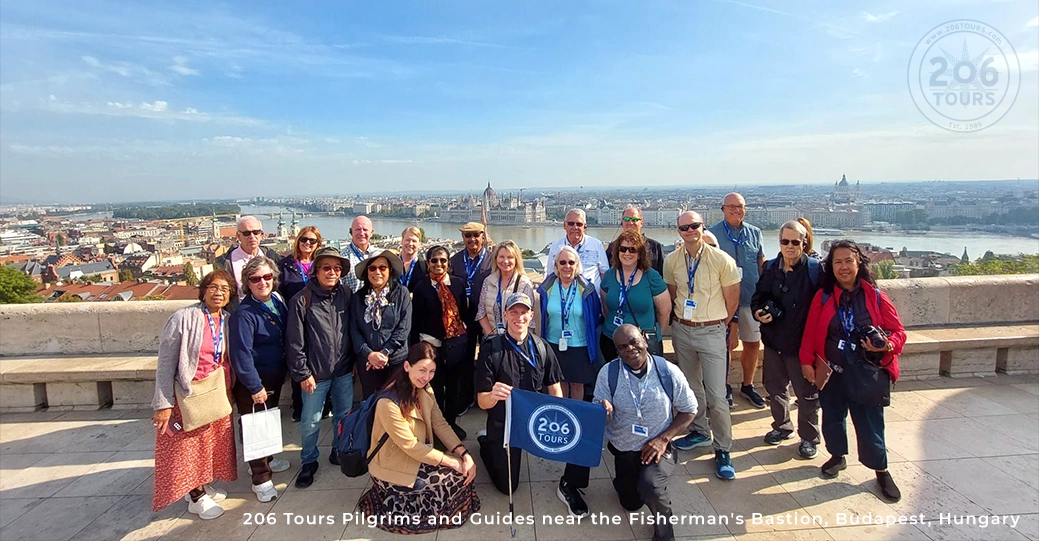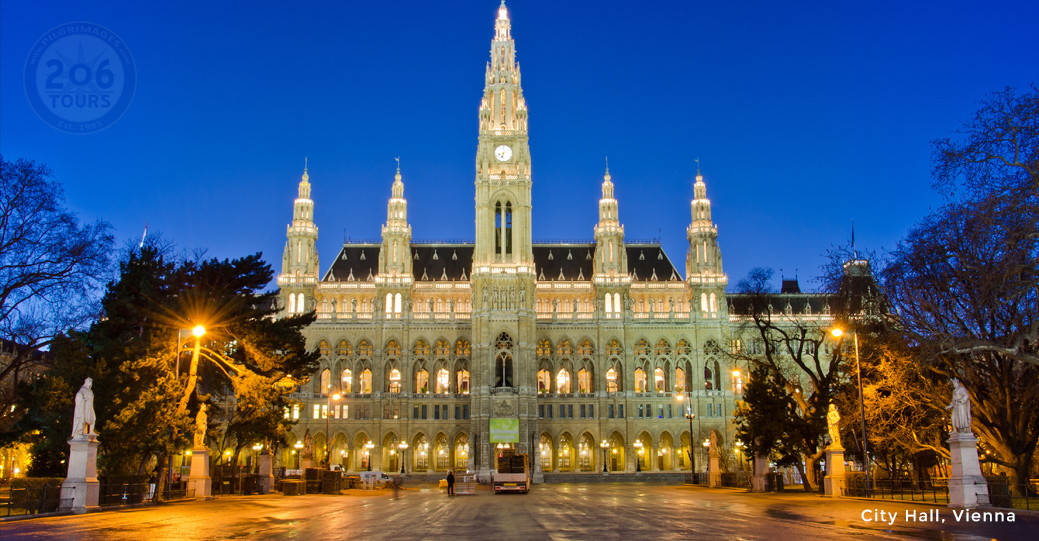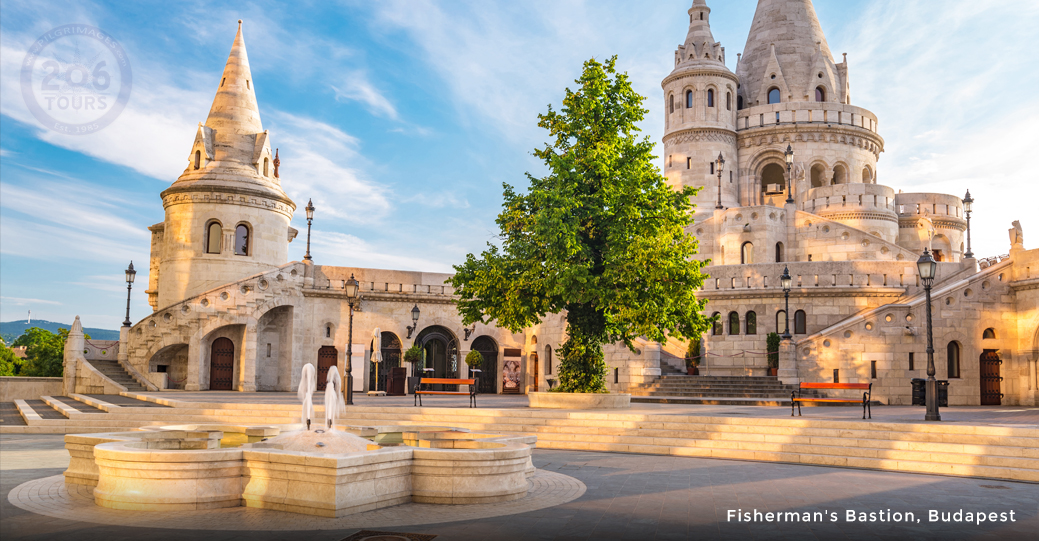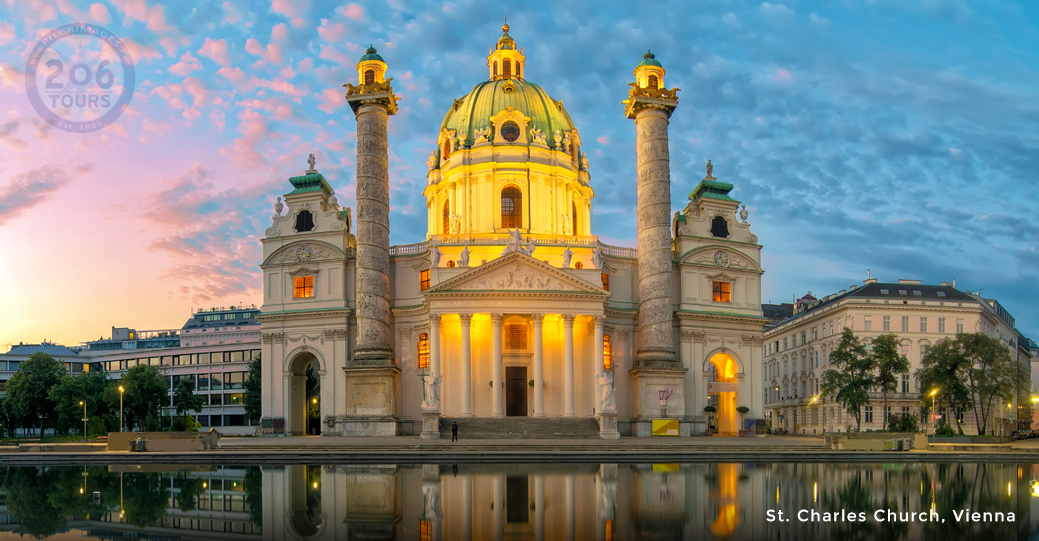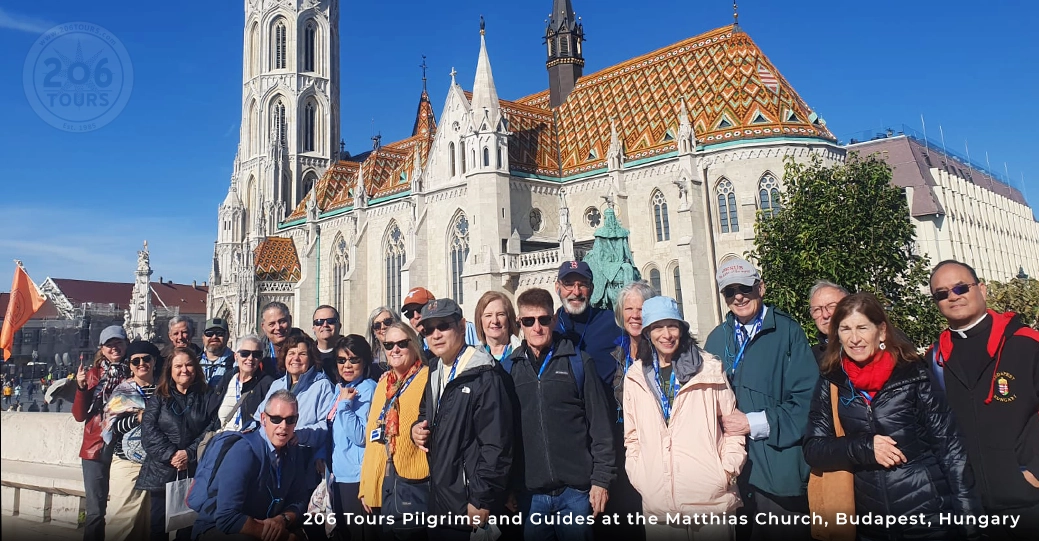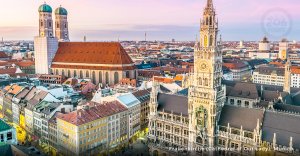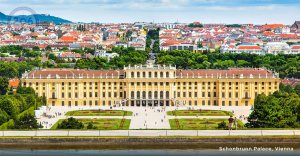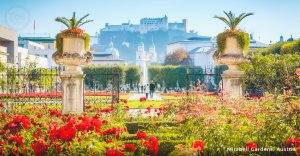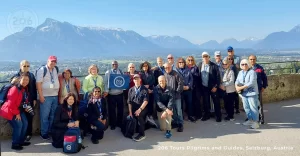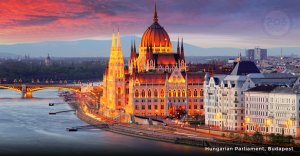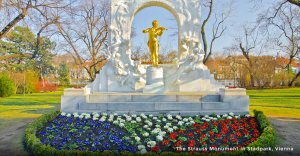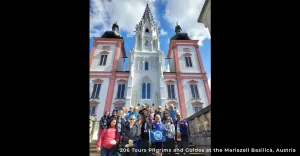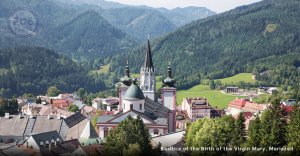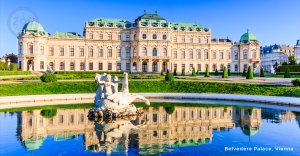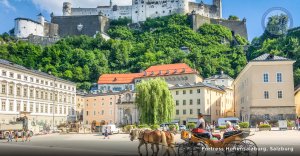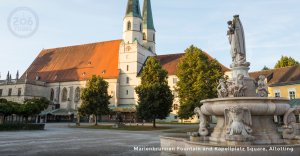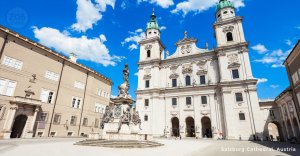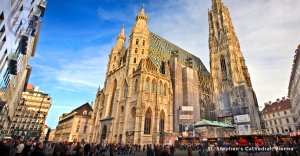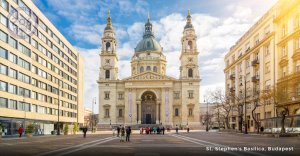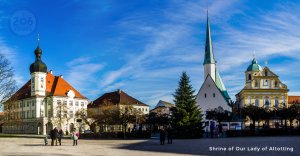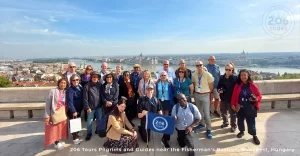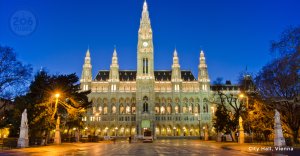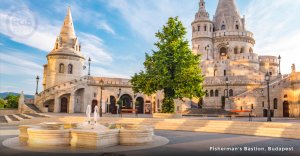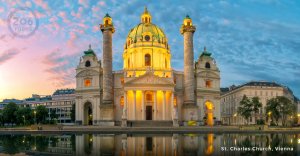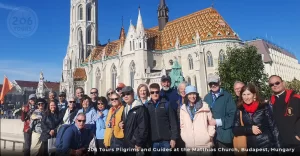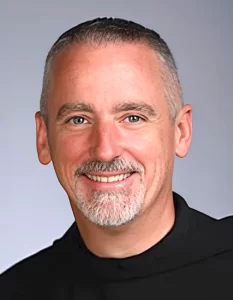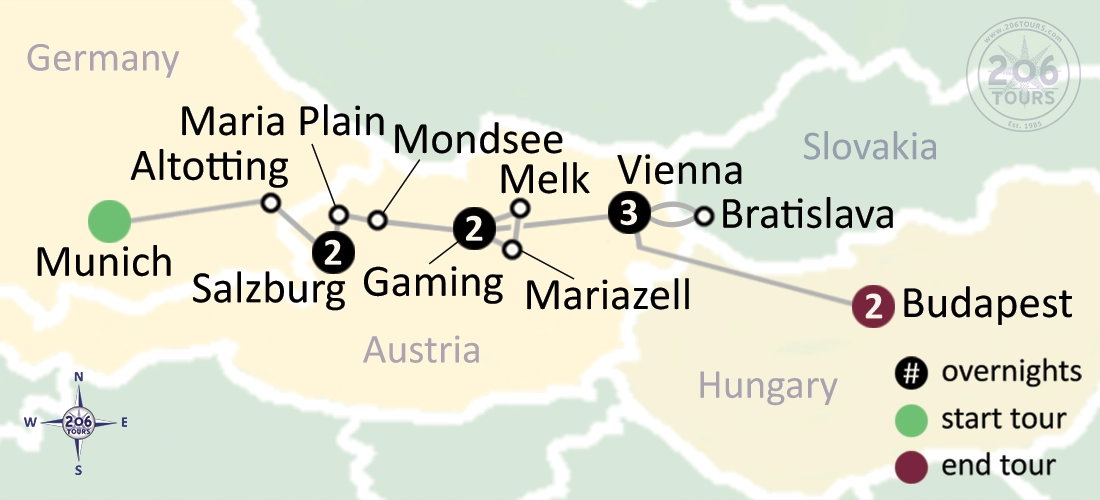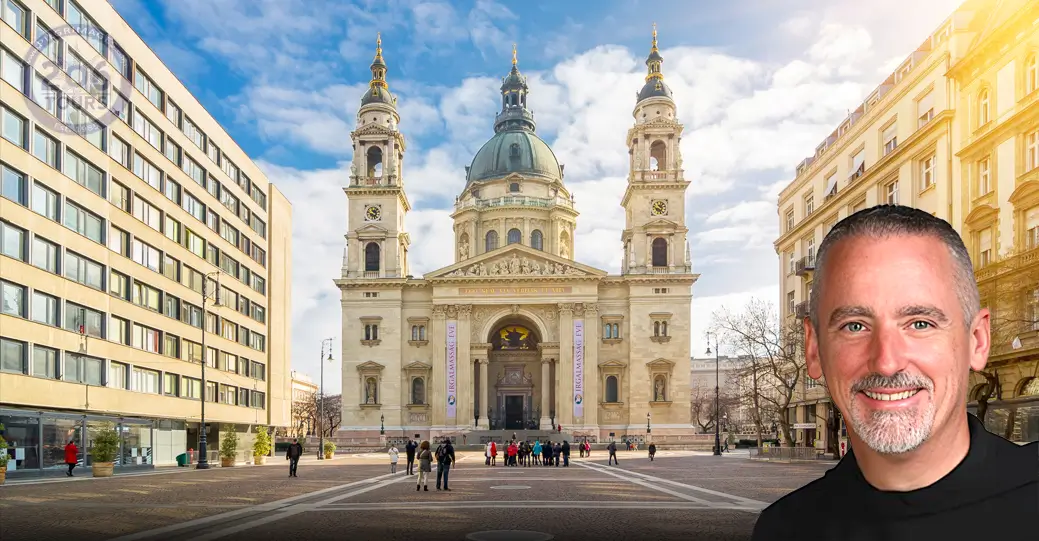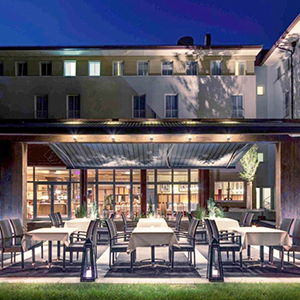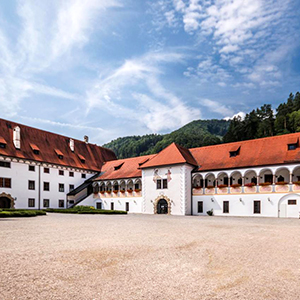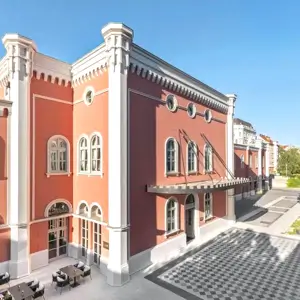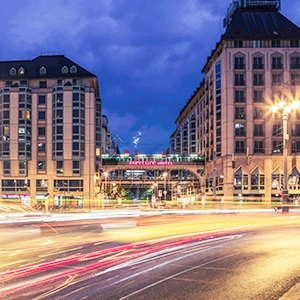Your trip includes
- Round-trip airfare from Pittsburgh (PIT) add on cities per: https://www.206tours.com/airports/
- Prepaid seat assignments
- Airport Taxes and Fuel Surcharges
- Hotel accommodations: (or similar) in double occupancy
- ~ 2 nights: Jun 20 - 22: Mercure Salzburg Central, Salzburg, Austria
- ~ 2 nights: Jun 22 - 24: Hotel Kartause, Gaming, Austria
- ~ 3 nights: Jun 24 - 27: Imperial Riding School, Autograph Collection, Vienna, Austria
- ~ 2 nights: Jun 27 - 29: Hotel Mercure Korona, Budapest, Hungary
- Breakfast and Dinner daily
- Wine with dinners
- Transfers as per itinerary
- Transportation by air-conditioned motor coach
- Whisper headsets (where needed)
- Assistance of a professional local Guide
- Sightseeing and admissions fees as per itinerary
- Mass daily & Spiritual activities
- Luggage handling (1 piece per person) – except at Kartause Gaming
- Flight bag & PDF digital confirmation of all travel documents
Not Included
- Lunches and beverages not mentioned, Tips to your guide & driver.
Itinerary
Day 1 | Friday, June 19: Depart for Munich
Make your way to your local airport, where you will board your overnight flight(s). Your meals will be served on board.
Day 2 | Saturday, June 20: Arrive Munich - Altotting - Salzburg
Upon landing at Munich airport, claim your baggage, proceed to the Arrivals Hall, where your tour guide and/or driver will greet you. You’ll board the coach for the scenic ride to Salzburg. Along the way, stop in Altotting, an important pilgrimage site in Germany, to see the “Black Madonna of Altotting.” Continue to Salzburg where you will check into your hotel and enjoy dinner and overnight.
Day 3 | Sunday, June 21: Salzburg
Today after breakfast you will have a day of exploring Salzburg. Attend Sunday Mass, and then start with a panoramic city tour where you will see the Cathedral, Mozart’s birthhouse, and the charming streets and squares of the city. Lunch is on your own, followed by a free afternoon. Dinner and overnight in Salzburg.
Day 4 | Monday, June 22: Salzburg – Maria Plain – Mondsee – Gaming
Check out of the hotel after breakfast, then board the coach for the driver to Maria Plain Shrine and view the “Virgin with Child” painting at the Basilica. Depart for Gaming with a stop in beautiful Mondsee. Embark on a Sound of Music tour after lunch, then proceed to the Kartause Gaming. Enjoy a tour of the Carthusian Monastery, now home to the Franciscan University of Steubenville study abroad campus. Overnight at the Kartause Hotel.
Day 5 | Tuesday, June 23: Gaming – Mariazell – Melk – Gaming
After breakfast at the hotel, depart for Mariazell, an important place of pilgrimage for Austrians. Visit the beautiful Basilica, then proceed to the Benedictine Abbey at Melk. Have lunch on your own, attend Mass at the Abbey, then enjoy a guided tour. Return to Gaming for dinner and overnight.
Day 6 | Wednesday, June 24: Gaming - Vienna
Check out of the hotel after breakfast, then depart for Vienna. Have lunch on your own upon arrival. Enjoy a visit to Schoenbrunn Palace, including the Apfel strudel cooking show with strudel and coffee included. Depart Schoenbrunn and check in to the hotel in Vienna. Dinner and overnight in Vienna.
Day 7 | Thursday, June 25: Vienna
After breakfast at the hotel, enjoy a panoramic tour of the Ring, followed by a walking tour of Vienna’s most famous sites, including Donner Fountain, Belvedere Palace Gardens, Hofburg Palace, Albertina, the Spanish Riding School, and St. Stephen’s Cathedral. Lunch is on your own, followed by a free afternoon to spend at your leisure. Dinner and overnight at the hotel in Vienna.
Day 8 | Friday, June 26: Vienna – Bratislava (ferry ride) – Vienna
Following breakfast, ride to the Vienna ferry port to board the ferry for Bratislava. Upon arrival in the capital of Slovakia, meet a local guide for a walking tour of the city. You will have free time for lunch, then board the ferry for the return to Vienna. Dinner and overnight at your hotel in Vienna.
Day 9 | Saturday, June 27: Vienna – Budapest
Check out of the hotel after breakfast, then board the bus for the drive to Budapest. Upon arrival in Budapest enjoy lunch on your own, followed by a tour of Budapest with a local guide. You will visit Fisherman’s Bastion, Mattias Church, and see the beautiful Parliament Building and St. Stephen’s Cathedral (exterior view). Check into your hotel and enjoy dinner and overnight in Budapest.
Day 10 | Sunday, June 28: Budapest – Danube Bend – Budapest
Following breakfast at the hotel, enjoy a Danube Bend tour as you head for Budapest. Visit Esztergom, seat of the Archbishop of Esztergom, and birthplace of St. Stephen, the Hungarian king. Continue to Visegrad and then to Szentendre, before returning to Budapest for a farewell dinner at a local restaurant. Overnight in Budapest.
Day 11 | Monday, June 29: Budapest – USA
After an early breakfast and heartfelt farewells, leave by motorcoach and transfer to Budapest Airport for return flights home.
*206 Tours Disclaimer:
Though every effort will be made to follow the itinerary, it should be considered as an indication, rather than a contract of places to be visited. Occasionally local religious holidays, national days, weather, traffic conditions and other events may necessitate changes in the sequence of visits or the missing of certain visits.
Would you like to arrive earlier or stay later?
Let us know at the time of registration if you would like to arrive earlier, or stay later, than the scheduled tour dates, and pending availability, we will change your airline reservations accordingly, additional fees may apply. Pre- and/or post-stays at the hotel will cost an additional fee. These options should be available to you when registering online, or simply contact us: sales@206tours.com



